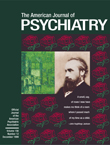As regards verisimilitude, modern realist writers oscillate between two goals. Some follow the old injunction to create a world. Others aim to evoke recognition of worlds already familiar—to elicit the response between author and reader that French critics have contemptuously called comme c’est cela, or “Just so!” Many writers’ colony stories are of this sort, full of brand names and women’s magazine marital complications. This second method is tricky—is it high art or low? But the best practitioners can turn complicity with the reader into novelty, using humor to spotlight a territory that proves unexpectedly poignant. It is this transition that Gish Jen attempts in her new collection of stories about (mostly) Chinese-American protagonists adrift in (mostly) American mainstream culture.
Jen earned widespread attention with a story, “What Means Switch,” in a 1990 issue of the
Atlantic Monthly devoted to promising young writers
(1). “Switch” (and the witty novel that grew out of it,
Mona in the Promised Land [2]) is a coming-of-age comedy about a Chinese-American schoolgirl in “Scarshill” with simultaneous passions for liberal Judaism and a prejudiced Japanese boyfriend. The story is replete with
comme c’est cela metaphors (the Changs’s new suburban home has “a rhododendron the size of their old bathroom”) and familiar social impasses (misunderstandings between ethnic mothers and daughters). You laugh out loud. Whether you come to a deeper appreciation of racism is less certain. Jen’s genius is in not pushing too hard.
Later, Jen contributed an essay to the
New York Times Magazine about the way Chinese heritage trumps Irish in the American eye
(3). She married an Irish American; seeing their children, an adult will invariably ask whether they are learning Chinese, not Gaelic.
Who’s Irish? plays on intimate tensions in a nation that claims to be a melting pot but never has been.
These were the themes of
Mona, but in the new collection, the humor has turned two full shades darker.
Mona alluded vaguely to fights between Mona’s parents; here (as in Jen’s novel
Typical American [4]), Mona’s father shoves the mother out an upstairs window. Here, too, a Chinese grandmother who disapproves of American laxness moves toward physical violence with a disrespectful toddler. Having proven she can write standup, Jen is moving toward drama.
No story in Who’s Irish? is the tour de force that “Switch” was. In an overlong account of a mixed marriage (“House, House, Home”), Jen’s observations turn mundane. The form is unforgiving; if you live by the bon mot, you die without it. But two linked vignettes about Mona’s father are priceless. Mona’s sister narrates. If she lacks Mona’s outspokenness, she compensates with moments of mystic vision. A fluorescent polo shirt thrown in a swimming pool bounces “back up into the air like a surreal fountain” before it sinks. Seemingly mired in his Chinese past, the immigrant father proves more adaptable, and perhaps more admirable, than his daughters had imagined.
As readers, it is hard to know what we should wish for from Jen—more spot-on wit or journeys farther afield. But we would be wise to follow her anywhere.

